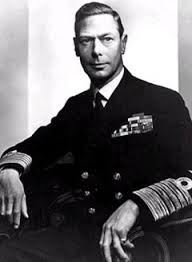My first memory of Scotland was arriving at Tay Bridge Station on a steam train.
 |
| Dundee Tay Bridge Station |
It was 1950: I was five years old. I had travelled back to Britain on a Union Castle liner with my mother, brother and sister and we must have taken an overnight 'sleeper' from London, having arrived from South Africa at Tilbury Docks near the mouth of the Thames. Perhaps we changed at Waverley Station in Edinburgh - I can't remember.
We took the short journey in a taxi from the station to Panmure Street where my grandparents lived in the top floor apartment.
 |
| Panmure Street near Albert Square, Dundee |
I recall climbing the wide stone stairs up three or four flights to the top landing and being greeted at the door by my grandmother, Grannie Mem (short for Grandma Jemima). She struck me as very old, her face thin and drawn, her grey peppered hair pulled back tight in a bun; her lips tight, her eyes more critical than welcoming, her face pale but with strangely rouged cheeks. She was simply quite frightening - to my child's mind she was more like a witch than a grandmother.
I have no recollection of my grandfather being there. Perhaps he had been at the station to greet us and bring us back in the taxi. It's strange because he was very much a grandfatherly figure - not tall, but portly, always dressed in a brown tweed three-piece with a fob watch on a chain in his waistcoat pocket, white wispy hair around a bald crown, his face round and weather beaten, his smile quiet but jovial enough, and on him the sweet aromatic smell of pipe tobacco.
We sat at a table in Grannie's large kitchen. The fact that everything was spoken of as 'Grannie's' - and the frequent absence of my grandfather (visiting his mother on her small holding in the country at Drumlithie in the Howe of the Mearns) - emphasised that she was very much the boss in this household. Grannie had prepared supper, and even before it was served I was apprehensive as there was a smell of something unfamiliar and unpleasant - a fishy smell. When plates were brought to the table and Grannie told us that she'd made some scrambled eggs, I couldn't believe my eyes. We had our own chickens in Africa and scrambled eggs had always had a rich yellow to almost orange colour and a crumbly appearance - but what Grannie served was a pale yellow and finely grained, like the smoothest blancmange- and it was the source of that horrid fishy smell!
I instantly earned my grandmother's hostility and my mother's fiercest rebuke, by saying, 'This isn't scrambled eggs!' My mother's response was to tell me not to be rude; to inform me that Grannie had made supper from powered egg as fresh eggs were scarce; and ordered me to eat it all up! My mother chastised me for my rudeness saying I was 'an ungrateful brat.' It wasn't the best of starts to our visit.
Even before that disastrous and disgusting supper (I'm sure my younger sister was 'excused from table' without eating much, my mother explaining that the child - only three - was too tired to eat after the long journey), I knew that we were in a different world. When I went to the bathroom to wash hands before supper, I saw the strange toilet seat imbedded in a wooden box-like structure and on the door a plaque with a warning :
Not much of it made sense to a five-year-old, but I got the drift - there were rules in this house and it would pay to keep them!


